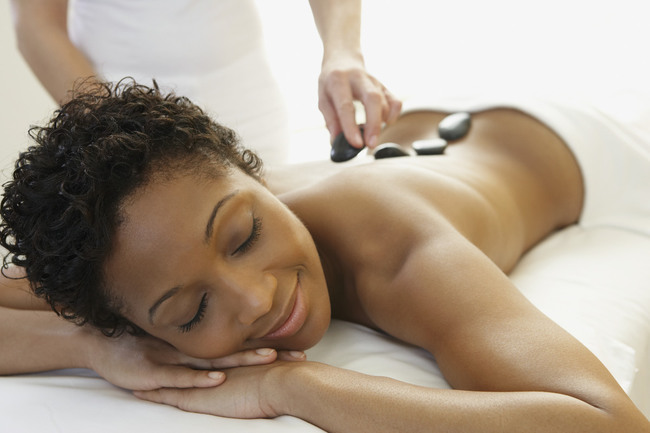Feminism invites us to call our power back. To advocate effectively for all women, we need to learn to advocate for ourselves. For many women, this is not something that comes naturally in everyday life. For the big stuff, we’re all in. Pay equity, non-violence, ending discrimination — totally. But when it comes to the more private & personal level — being in touch with our own needs and desires, saying no without feeling guilty, and trusting ourselves — many of us need practice. The personal is political.
We’ve been raised to believe that a good woman takes care of others first. That leaves many of us not knowing how to care for ourselves, or not being comfortable doing it. And so we commit to others and sacrifice our own time, energy and peace of mind in the process. On the surface, it’s “fine,” but deep down, resentment is brewing.
We have the right to want more. We deserve to have space for ourselves in our lives. Self-care is the ground floor of the revolution. This is where we begin to reclaim our lives, even in the midst of a chaotic and complicated world. And that, my love, is life-changing.
I believe that when we begin to practice self-care, it’s the beginning of a tremendous shift.
Practicing self care helps us to embody the following truths:
I have a choice.
My experience matters.
I deserve to be cared for and nurtured.
I am the leader of my life.
I teach people how to treat me.
I love and appreciate myself.
From a place of self-awareness, we have more clarity and confidence, and we begin to lead our lives from the heart.
Self-care must happen regularly if we want to feel vibrant and whole in our daily lives. Spa days are lovely, but for best results, short practices that can be done daily or weekly serve us best. It might be the simple act of three deep breaths when you need it the most, or writing in your journal to raise your consciousness about what’s working and what’s not in your life. Consistency is key in order to develop a stronger relationship with ourselves.
When we practice self-care regularly, not only do we come down from the fight or flight response that arises when we’re stressed, but we also wire our brains with the truths above. It is a basic way to call our power back and cultivate healthy boundaries. It’s empowering. It’s restorative. It’s self-preservation. It’s the new feminism.
The magic of all of this is that it’s scalable. By practicing self-care, we’re flexing the muscles we need to transform our relationships and our lives. When we vigilantly make time for ourselves, we can actually feel and process our emotions, and allow our deepest truth to arise. From a place of self-awareness, we have more clarity and confidence, and we begin to lead our lives from the heart. On a basic level, we actually have energy — physically, mentally and emotionally — and this makes all the difference.
In order to carve this time out for ourselves, it requires changing the rules in some of our relationships. Perhaps we stop working so late. We commit a window of time to ourselves before filling our schedules with other things. We learn how to say no. We face the discomfort of perhaps disappointing others by not being perpetually available. Other people will get over the disappointment. With practice, our guilt will become less hardwired, and we’ll actually feel the truth of the statement that we must first put on our own oxygen masks before helping others.
In the book Sacred Pampering Principles, Debrena J Gandy shares the memory of her mother’s self-care ritual of getting her hair done every three weeks, like clockwork. Everyone knew that this ritual was non-negotiable, and it helped the author to understand from a young age that self-care is a divine right. She says, “Pampering is not self-serving, it’s conscious self-service.” It was part of the family culture, created from the inside out. Just to be clear, I am not saying that getting your hair done is the new feminism — oh no. Claiming guilt-free time to do something that nurtures you? Yes, indeed — that’s the stuff. Imagine what your version could entail. I say “imagine” because, even if it doesn’t feel realistic right now, it all begins with a thought. Feel into the possibility and see what arises for you.
OK, so let’s get to the part about guilt, shall we? We can’t talk about self-care without real talk about guilt. It’s not uncommon to hear a woman resolve to make more time for herself, only to feel guilty and fall back into old patterns of over-committing and making other people happy. For this shift to last, it’s important to take a closer look at what’s really going on. My hunch is that, for most women who feel stuck in this particular way, there’s a nagging belief that our worthiness is determined by our ability to take care of others rather than being our birthright. It might not be top of mind when you’re committing to a third engagement for an already-busy Saturday, but if you peel back the layers, beneath the guilt, it’s probably there, subtly informing your choices.
As you invite your needs back into the equation, guilt fades and self-love grows. And so we begin with a simple time out — a daily or weekly commitment, no matter how short — to spend time meeting our own needs. We begin to honour our wholeness. No step is too small.
Do it for yourself. Do it for your loved ones. Do it for the next generation. Do it so that we can live in a world where it’s normal for women to put themselves first.

